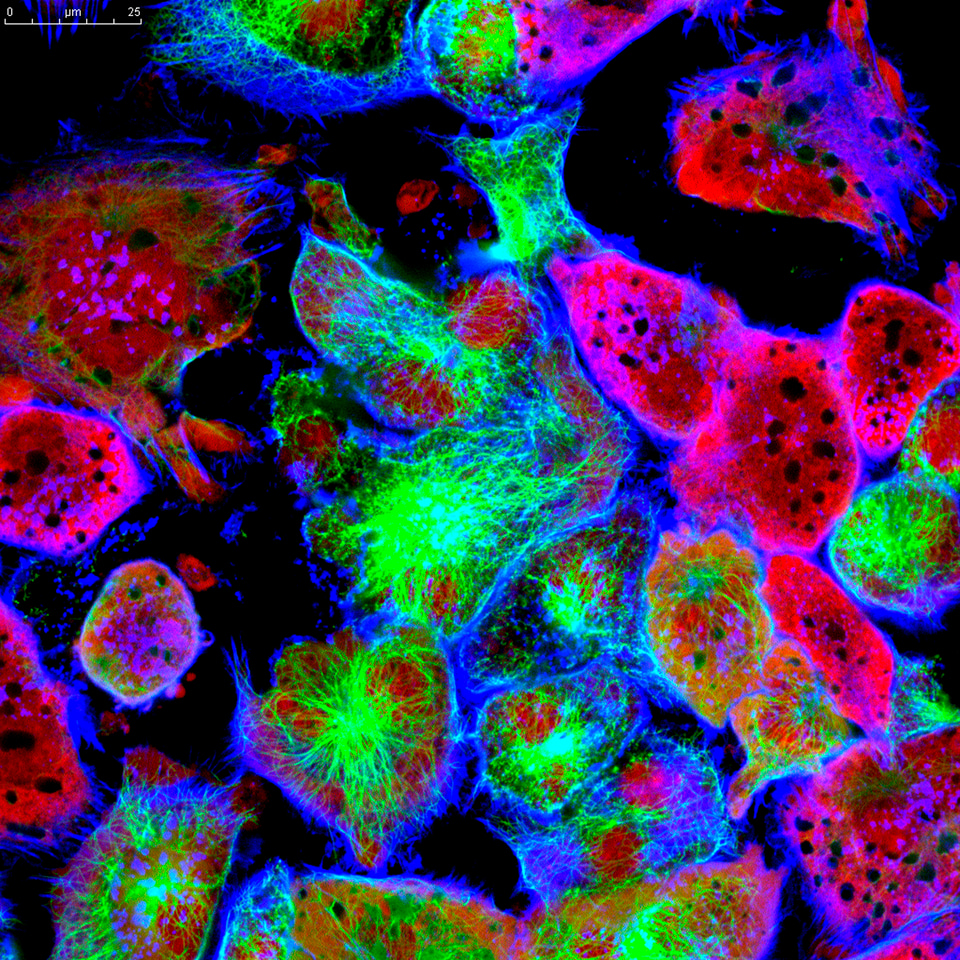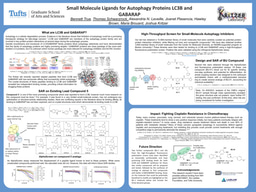Project: Chemical Inhibition of Autophagy

Background
All cells in our body need proper regulation. A large part of that consists of reusing, recycling, and expelling waste—whether that be certain proteins, chemical aggregates, organelles, or even invading pathogens. In cancer cells, this process remains tightly regulated and allows the cells to proliferate dangerously well. In some cases, cancer cells upregulate autophagy, which allows them to become more resistant to chemotherapies that attempt to destroy the tumor. My project this summer will aim to develop new ways to suppress autophagy, so that chemotherapies can become more effective at eliminating cancer.
Methodology
My research furthers a project started at Tufts University's Kritzer lab. Before I arrived, the lab had identified a chemical that binds to LC3 and GABARAP, which are autophagy-related proteins. This is only the first step—that's where I come in. My job will be to create several new chemicals that incorporate the original structure of the known compound. This way, I will be able to methodically test the effectiveness of the substituents I add or take away, and emerge with a robust chemical.
My work consists of several steps. First, I need to prepare everything. To start my project from scratch, I need to create and purify the LC3 and GABARAP proteins, synthesize and purify all of our chemicals, and optimize the procedure for each of these steps so that our data is replicable. Second, I will test the binding between our chemicals and the autophagy proteins. Finally, if a promising compound is found, I'll begin cell-based testing. Throughout this whole process, I need to stay up-to-date on others' research in this field. Recently, our lab received data from Boston University about a new array of compounds, so I will need to design a new reaction to create them.
Goals
Drug design is extremely challenging because designing a new, pure substance requires high levels of precision. Even so, these experiments often fail despite your best efforts. I would be satisfied if by the end of my time this summer, our lab can identify a few promising chemicals, and begin to move forward with large-scale production. Much further down the road, I believe my research will lead to insight into the role of autophagy in cancer. Most importantly, I hope it will bring us one step closer to improving existing chemotherapy treatments and saving lives.

Please sign in
If you are a registered user on Laidlaw Scholars Network, please sign in